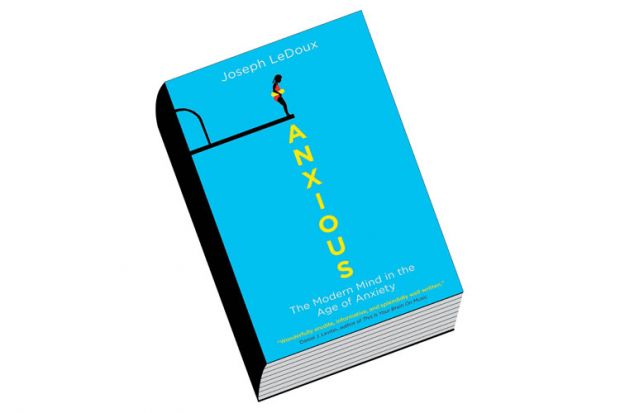This impressive book is long, detailed and deep.
It is a long book because it tells a complex story that cannot be swiftly brushed on to just one canvas. Indeed, if you were looking for a visual corollary to the chapters that make up this book, you’d need a whole series, such as Goya’s dark, disturbing set of 14 “Black Paintings”. I’m not trying to say that neuroscientist Joseph LeDoux is as disturbed as Goya was; my intention is simply to draw a parallel between a great book about what fear and anxiety are, and a series of artworks in which an artist expresses his fears and emotional pessimism about humanity. And emotion is at the core of this book: what it is, how it works and where it comes from. LeDoux’s presentation of the material is clever, focusing on his own research expertise in the cognition of fear and anxiety. He makes an important distinction between fear and the response to threat, and he argues that we are wrong to persist in eliding the two. And he’s right; we do confuse the two. We do not know if animals feel fear: we know they respond to threat, and we assume that they feel fear, but of course they cannot tell us. The notion that the feeling of fear is a conscious experience is at the heart of this book; the idea that fear requires the report of fear to be “real” fear.
It is a detailed book because LeDoux needs to recount the history of scientific investigations of fear and anxiety, and describe the underlying psychological constructs, the brain areas and brain networks associated, and the competing theories. And it’s a deep book, too; not only because of the wealth of information presented but more importantly because LeDoux is not afraid to take sides and positions. He favours one interpretation, theory or idea based on evidence, and persuades us with reason and the power of critical thinking. He is a true scientist, and here, in his third book, there is maturity, there is breadth. You will know more than you did, and you will start to think differently about what it means to be afraid.
After I read the first few chapters of this book, I asked my nine-year-old daughter to scare me. I wanted a first-person perspective to analyse, in order to understand what LeDoux claims about consciousness; namely, that it is accessible only to you. I do not agree with him; I think we can operationalise the concepts to make them measurable, and then what you tell me that you feel and how you feel it becomes that, and exactly that, and just that, under the experimental umbrella. And the very personal and exclusive feeling of your fear might need other theoretical frameworks to be grasped, but for now we can easily live with consciousness as a scientific beast. I think LeDoux agrees with me on that point; consciousness is a scientific animal, and even if he is not a consciousness researcher himself these days, it is both the fact that we can measure the brain, and the conceptual advances made in the field, that allow us to treat consciousness as another cognitive function. My daughter did a good job, by the way. She made me jump when I went to say goodnight to her a few nights back: she had fake blood on her face and opened her eyes suddenly and growled. And it was exactly as described in LeDoux’s book: I had a full-on reaction, with all the body markers and the jump and the shouts. I felt fear, and then embarrassment about being tricked by a preteenager, and anxious the following day that she might do it again. I was proud that I managed not to tell her…and when the next attempt comes, I’ll be prepared.
Inevitably, Anxious is about consciousness, since its main thesis (as the opening line in chapter 6 states) is that “fear and anxiety are conscious experiences, feelings that take over our conscious minds”. Chapter 8 is key; here we get the full party dress, with LeDoux integrating the preceding chapters on biology with the ones on cognition, giving us a series of masterful brushstrokes that paint the picture of what fear is in the brain, and what it is to you. In this most anxious of ages, the author gives us a complex and beautiful answer to the question of how to understand and cope with it. I am not going to tell you what it is, though; you’ll have to read it. I’ve calmed down now.
Tristan A. Bekinschtein is lecturer in the department of psychology, University of Cambridge.
Anxious: The Modern Mind in the Age of Anxiety
By Joseph LeDoux
Oneworld, 480pp, £14.99
ISBN 9781780747675
Published 20 August 2015
POSTSCRIPT:
Print headline: Sleeping with the light on
Register to continue
Why register?
- Registration is free and only takes a moment
- Once registered, you can read 3 articles a month
- Sign up for our newsletter
Subscribe
Or subscribe for unlimited access to:
- Unlimited access to news, views, insights & reviews
- Digital editions
- Digital access to THE’s university and college rankings analysis
Already registered or a current subscriber?




